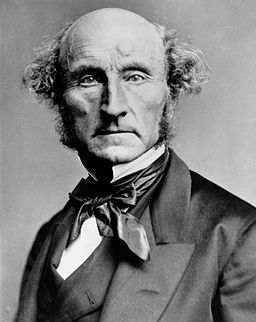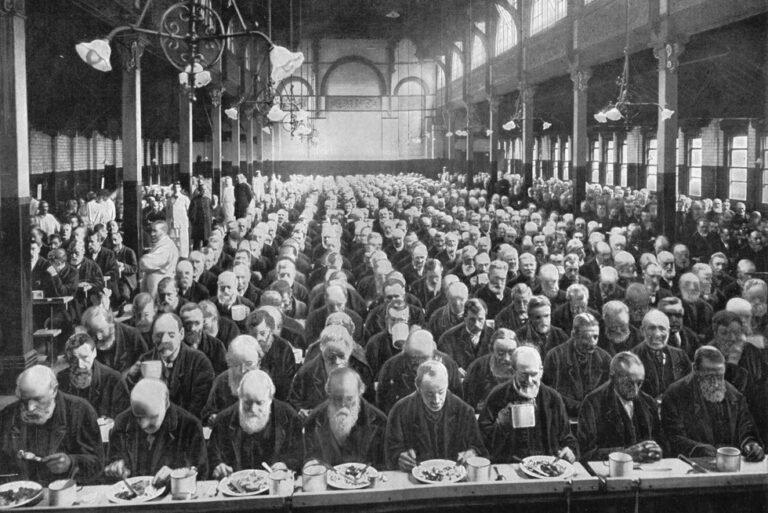John Stuart Mill was a philosopher, economist, and political thinker. He made significant contributions to liberalism and utilitarianism.
Born in 1806, Mill was a child prodigy, educated by his father, James Mill. He became a leading figure in British thought. His work on liberty, individuality, and social progress remains influential today. Mill’s ideas shaped modern democracy and ethical philosophy.
Understanding his life and work provides insights into contemporary political and moral debates. In this blog, we will explore Mill’s key contributions, his major works, and the impact of his ideas. Join us in discovering how John Stuart Mill continues to inspire and challenge thinkers worldwide.

Credit: en.wikipedia.org
Early Life And Education
John Stuart Mill was born on May 20, 1806, in London. He was one of the most influential philosophers of the 19th century. His father, James Mill, was a historian and philosopher. James wanted John to become a great thinker. So, he designed a strict and intense education for him.
Formative Years
John started learning Greek at the age of three. By eight, he had read many Greek and Latin classics. His father taught him mathematics, logic, and economics. John also learned history and political theory. This unique education was demanding. But it shaped his brilliant mind.
Influence Of Jeremy Bentham
Jeremy Bentham was a close friend of John’s father. Bentham was a leading philosopher and the founder of utilitarianism. He believed in the greatest happiness principle. This principle states that actions are right if they promote happiness. Bentham’s ideas deeply influenced John. John later became a strong advocate of utilitarianism.
John’s early education and Bentham’s ideas shaped his future works. He became a key figure in philosophy and political theory. His writings still inspire people today.
Philosophical Contributions
John Stuart Mill was a profound thinker. He made significant contributions to philosophy. His ideas shaped modern thought and continue to influence us today. Two of his most important contributions were in the areas of Utilitarianism and Liberty and Freedom.
Utilitarianism
Mill is famous for his work on Utilitarianism. This philosophy suggests actions are right if they promote happiness. The idea is simple: seek the greatest good for the greatest number. Mill built on the ideas of Jeremy Bentham, another philosopher. He refined them, making them more practical and humane.
Mill introduced the concept of higher and lower pleasures. Higher pleasures involve the mind, like reading or learning. Lower pleasures involve the body, like eating or resting. He believed higher pleasures are more valuable. This distinction improved the understanding of what makes life good.
| Key Concept | Description |
|---|---|
| Greatest Happiness Principle | Actions are right if they promote happiness and wrong if they produce the opposite. |
| Higher and Lower Pleasures | Higher pleasures involve intellectual activities; lower pleasures involve physical activities. |
Liberty And Freedom
Mill also wrote extensively on Liberty and Freedom. He argued for individual freedom in his book, “On Liberty”. Mill believed that everyone should be free to act as they wish. As long as they do not harm others. This principle is known as the harm principle.
He thought that society should allow people to express themselves. Freedom of speech was very important to him. Mill believed that open discussion leads to truth. Even if some ideas are wrong, they must be heard. This way, the best ideas can emerge.
- Individual freedom is crucial.
- People should act freely if they do not harm others.
- Freedom of speech is necessary for truth.
Mill’s ideas on liberty influenced democratic societies. They shaped modern views on personal freedom and human rights. His work remains relevant today, guiding discussions on liberty and individual rights.
Political Ideals
John Stuart Mill was a philosopher and political economist. His ideas have shaped modern political thought. He believed in liberty, equality, and justice. Mill’s political ideals focused on individual freedom and societal progress.
Democracy
Mill was a strong advocate for democracy. He believed that every person should have a say in government. He thought that democracy helps people grow and learn. It encourages active participation in society. Mill argued that voting rights should be extended to all adults. This includes both men and women. He felt that a fair society must listen to all voices.
Women’s Rights
John Stuart Mill was also a pioneer for women’s rights. He believed women should have the same opportunities as men. Mill argued that denying women rights was unjust. He felt that society should remove all barriers to women’s participation. Mill’s wife, Harriet Taylor, influenced many of his views on this topic. Together, they wrote about the importance of gender equality. Mill’s work inspired many future activists for women’s rights.
Economic Theories
John Stuart Mill made significant contributions to economic theories. His ideas influenced both classical and modern economics. Mill’s thoughts on economic systems ranged from free-market principles to socialist ideals.
Laissez-faire Economics
Mill supported the idea of laissez-faire economics. He believed that minimal government intervention led to a more efficient market. Individuals should make their own economic choices. This freedom would drive innovation and economic growth. Mill argued that government should only step in to prevent harm. Otherwise, markets should regulate themselves.
Socialism
Mill also explored socialist ideas. He saw the potential for a more equal society. In his view, wealth should be distributed more fairly. He suggested worker cooperatives as a solution. These cooperatives would allow workers to share in profits and decision-making. Mill believed this could reduce economic inequalities. While he did not fully embrace socialism, he valued its principles.
Ethics And Morality
John Stuart Mill was a profound thinker in the realm of ethics and morality. His ideas have shaped modern views on how we should live our lives. Mill’s work focused on the balance between individual freedom and societal good. Understanding his principles can give us insight into our own moral decisions.
Harm Principle
The Harm Principle is one of Mill’s key concepts. It states that individuals should be free to do anything, as long as they do not harm others. Mill believed this principle maximizes personal freedom while protecting society. This idea is central to many modern democratic societies. It helps to balance individual rights with the common good. For Mill, the harm to others is the only valid reason to limit someone’s freedom.
Moral Rights
Mill also discussed moral rights in his writings. He believed in the importance of protecting individual rights. These rights are essential for personal and social well-being. Mill argued that moral rights should be respected to maintain a just society. He saw rights as critical for protecting individuals from oppression. This view has influenced many legal and ethical systems today. Mill’s approach to moral rights emphasizes fairness and respect for all.
Impact On Education
John Stuart Mill, a renowned philosopher, had a significant impact on education. His ideas and beliefs shaped modern educational practices. Mill’s contributions focused on the importance of critical thinking and the necessity of accessible education for all.
Advocacy For Compulsory Education
Mill strongly supported compulsory education. He believed every child should have access to education. Mill argued that education was essential for personal and societal growth. He saw it as a tool to promote equality and reduce poverty. His advocacy helped push laws that made education mandatory for children.
Rational Thinking
Mill emphasized the importance of rational thinking in education. He believed students should learn to think critically and independently. Mill argued that education should not just be about memorizing facts. Instead, it should teach students how to reason and evaluate information. His ideas encouraged a more analytical approach to learning.
Critiques And Controversies
John Stuart Mill is a prominent figure in philosophy. His ideas have sparked many discussions. Some praise him, while others criticize his theories. Let’s explore the main critiques and controversies surrounding his work.
Criticism Of Utilitarianism
Mill’s utilitarianism is often criticized. He believed in the “greatest happiness principle”. This means actions are right if they promote happiness. Wrong if they produce the opposite. Critics argue this is too simplistic.
Here are some common criticisms:
- Ignores individual rights: Critics say utilitarianism ignores the rights of individuals. It focuses on the majority’s happiness.
- Difficult to measure happiness: Measuring happiness is subjective. What makes one person happy might not work for another.
- Overlooks justice: Some actions might increase happiness but are unjust. For example, punishing an innocent person to please the majority.
Despite these criticisms, many still find value in Mill’s utilitarianism.
Debates On Liberty
Mill’s work on liberty has also faced debates. He wrote “On Liberty” in 1859. This book argues for individual freedom. Mill believes people should be free to act as they wish. But only if they do not harm others.
Let’s look at some key points of debate:
- Absolute freedom vs. social order: Some argue Mill’s idea of freedom can lead to chaos. Society needs rules to function.
- Harm principle: Mill’s harm principle states that power can only be used against someone’s will to prevent harm. Critics say this is vague. What counts as harm?
- Freedom of speech: Mill strongly supports free speech. Critics worry this can lead to harm. Hate speech or false information, for example.
Mill’s ideas on liberty continue to inspire and challenge thinkers today.
Legacy And Modern Relevance
John Stuart Mill left a profound legacy that continues to influence our world today. His ideas on liberty, democracy, and ethics remain significant. This section explores his enduring impact and relevance in modern times.
Influence On Contemporary Thought
Mill’s work has shaped modern political theory and philosophy. His book, On Liberty, emphasizes individual freedom and is still studied in universities. His advocacy for women’s rights paved the way for gender equality movements.
Mill’s utilitarian principles influence modern economics and public policy. His idea that actions should promote the greatest happiness guides ethical decision-making in various fields.
- Political Theory
- Gender Equality
- Utilitarianism in Economics
Enduring Works
Mill’s writings remain relevant and widely read. Some of his most important works include:
- On Liberty – A treatise on individual freedom.
- The Subjection of Women – Advocates for women’s rights.
- Utilitarianism – Explores the philosophy of utilitarianism.
These works continue to inspire debates and discussions. They are essential reading for students of philosophy, politics, and ethics.
| Work | Publication Year | Key Themes |
|---|---|---|
| On Liberty | 1859 | Individual Freedom, Liberty |
| The Subjection of Women | 1869 | Gender Equality, Women’s Rights |
| Utilitarianism | 1863 | Ethics, Greatest Happiness Principle |
Mill’s legacy remains influential. His ideas continue to shape contemporary thought and societal values.

Credit: www.econlib.org
Frequently Asked Questions
Who Was John Stuart Mill?
John Stuart Mill was an influential British philosopher and political economist. He is known for his contributions to utilitarianism, liberty, and social theory.
What Are John Stuart Mill’s Main Works?
John Stuart Mill’s main works include “On Liberty,” “Utilitarianism,” and “The Subjection of Women. ” These works have greatly influenced modern philosophical and political thought.
What Is John Stuart Mill’s Theory Of Utilitarianism?
John Stuart Mill’s theory of utilitarianism suggests that the best action maximizes happiness. He believed in promoting the greatest good for the greatest number.
How Did John Stuart Mill Influence Liberalism?
John Stuart Mill influenced liberalism by advocating for individual liberty and freedom of expression. His ideas have shaped modern democratic societies and liberal thought.
Conclusion
John Stuart Mill’s ideas still influence our world today. His thoughts on liberty and individuality are timeless. Mill’s philosophy encourages us to think critically. He reminds us to value freedom and personal growth. Understanding his work can enrich our lives.
Dive into his writings and see their impact. Mill’s legacy lives on, guiding our quest for knowledge and justice.








